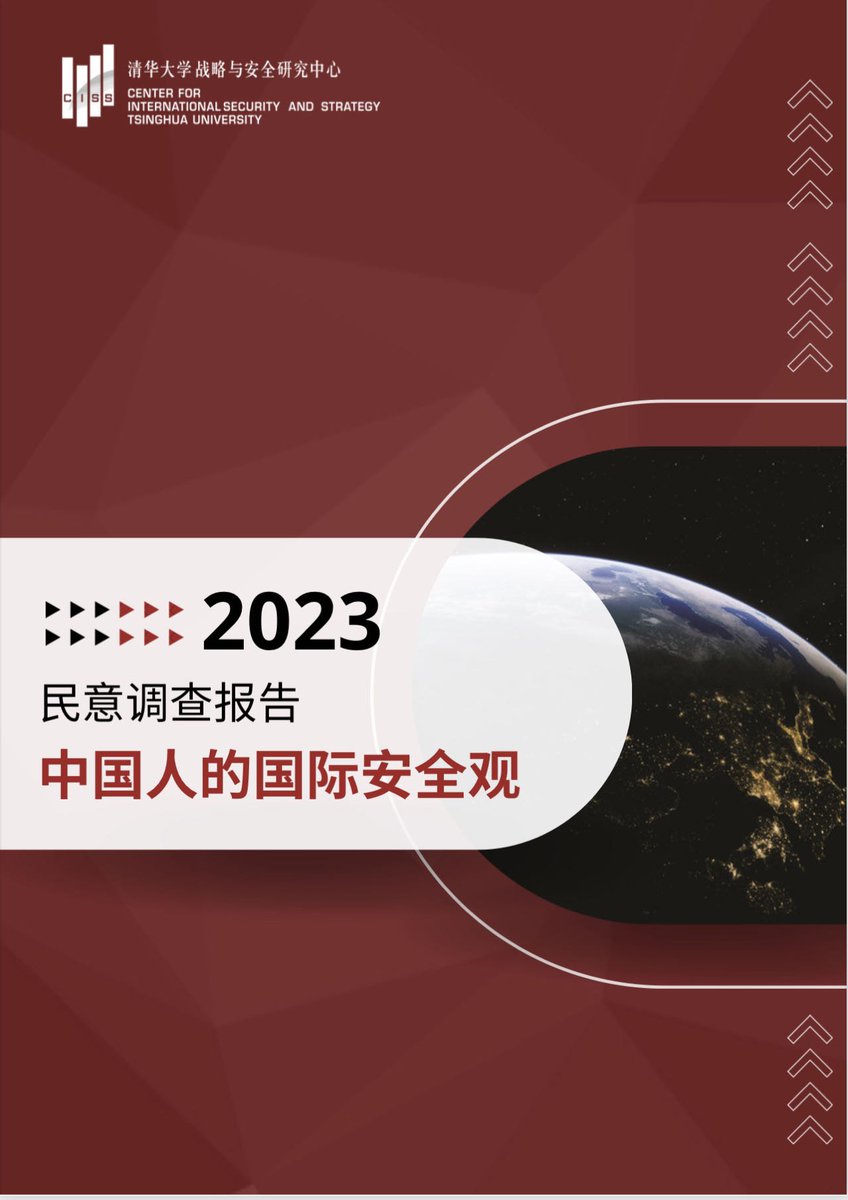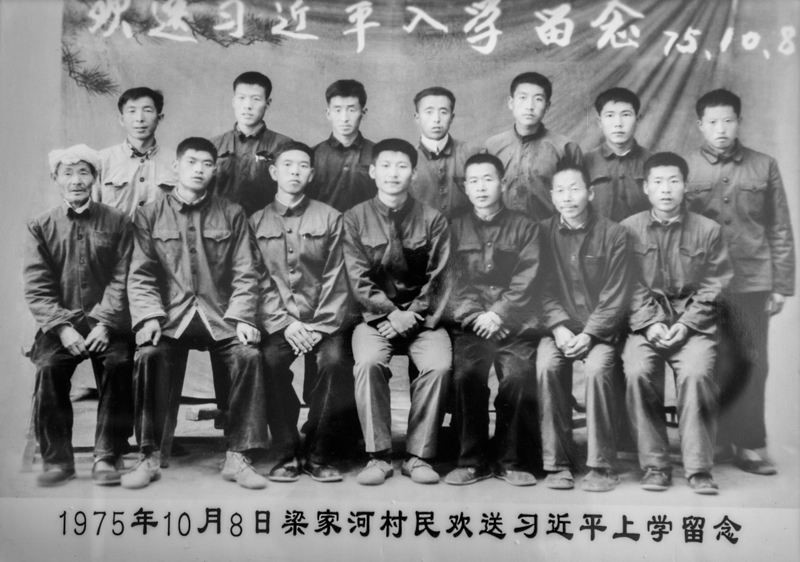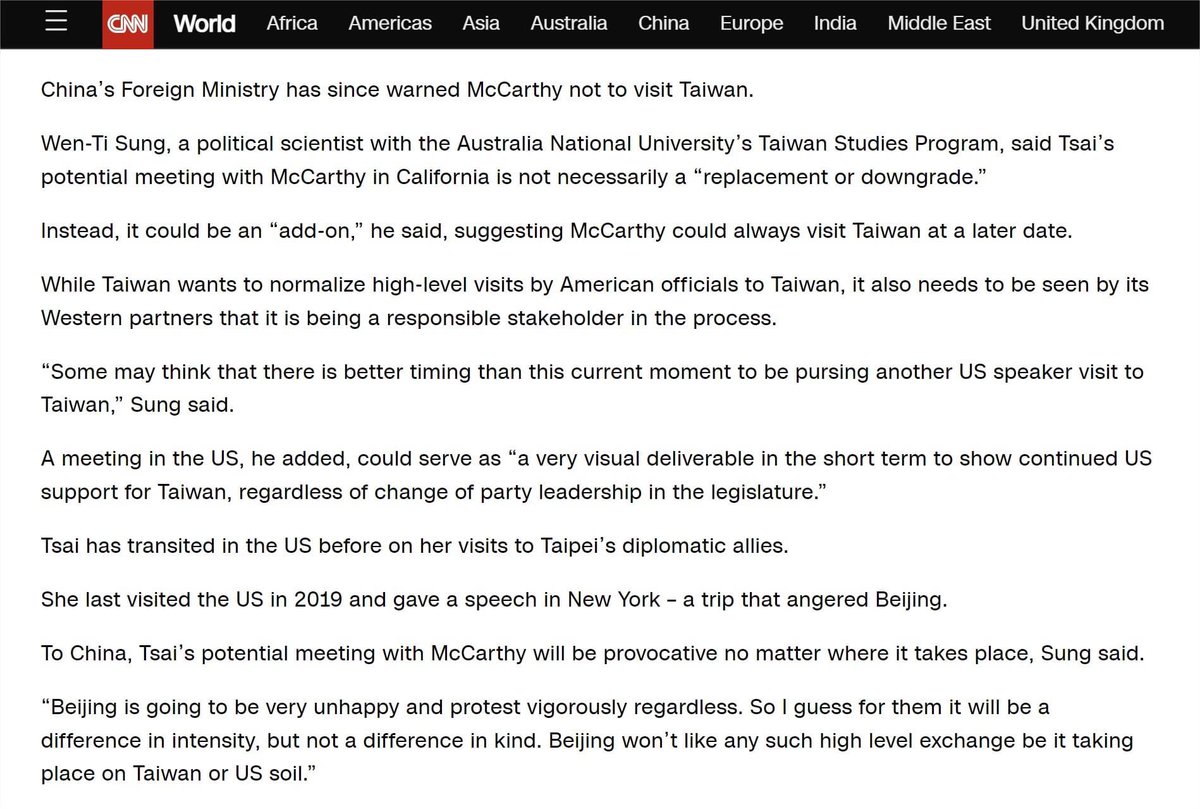China's President Xi Jinping's alma mater Tsinghua University just released a survey named "China Unfiltered: The Chinese People's View on National Security". (“无滤镜的中国”:中国人的国际安全观调查)
What did the survey find? A thread. /1🧵
What did the survey find? A thread. /1🧵

Tsinghua University is widely known as one of China's 'Big 2' universities (along with PKU), and is arguably the most politically connected one -- having produced 4 out of the last 6 Presidents and Premiers, including Xi Jinping (pictured in 1975 at his send-off to Tsinghua)./2 

This survey is done by Tsinghua's CISS (Center for International Strategy and Security), and has made 8 findings. /2
1. Almost 80% of Chinese people believe they have 'great' (36%) or 'good' (41.3%) understanding of international security. /3
1. Almost 80% of Chinese people believe they have 'great' (36%) or 'good' (41.3%) understanding of international security. /3

But what's the information diet that cultivated their understanding?
Government sources dominate. 2/3 get their info primarily from govt sources (central govt media; local govt media; govt sites/apps).
Only 10% seek non-govt sources.
1.7% (admit to) seeking foreign sources. /4
Government sources dominate. 2/3 get their info primarily from govt sources (central govt media; local govt media; govt sites/apps).
Only 10% seek non-govt sources.
1.7% (admit to) seeking foreign sources. /4
2. #Optimism I: Chinese people think the world is largely safe.
49.8% - safe
19.9% - unsafe
Interestingly, Southern China, which is economically prosperous & often farther removed from national politics, tends to be most optimistic (i.e. least worried) about global security. /5
49.8% - safe
19.9% - unsafe
Interestingly, Southern China, which is economically prosperous & often farther removed from national politics, tends to be most optimistic (i.e. least worried) about global security. /5
2. #Optimism I: Chinese people think the world is largely safe.
49.8% - safe
19.9% - unsafe
Interestingly, Southern China, which is economically prosperous & often farther removed from national politics, tends to be most optimistic (i.e. least worried) about global security. /5
49.8% - safe
19.9% - unsafe
Interestingly, Southern China, which is economically prosperous & often farther removed from national politics, tends to be most optimistic (i.e. least worried) about global security. /5
3. #Optimism II: 71% think the world will become safer for China over the next 5 years.
Note that #age and #education level matter here. The older and more educated the respondent, the more likely they'll think the world is unsafe for China. /6
Note that #age and #education level matter here. The older and more educated the respondent, the more likely they'll think the world is unsafe for China. /6

4. Still #Open door:
68% still think globalization on the whole has been good for China's development, and most respondents (60-94%) across all education levels think international education and scientific exchanges are desirable. /7
68% still think globalization on the whole has been good for China's development, and most respondents (60-94%) across all education levels think international education and scientific exchanges are desirable. /7
5. Chinese people's top 3 security concerns:
a. Global pandemic (72% are concerned)
b. International interference on the Taiwan issue (72%)
c. US-China competition & conflict (74%) /8
Bottom 2 concerns:
a. International econ stagnation.
b. Climate change /8
a. Global pandemic (72% are concerned)
b. International interference on the Taiwan issue (72%)
c. US-China competition & conflict (74%) /8
Bottom 2 concerns:
a. International econ stagnation.
b. Climate change /8
6. Clear confidence that China is still on the rise (no #PeakChina talk):
Perceived influence ranking: China > US > Russia > UN > EU.
90.4% believe China's global influence has gown over the last 5 years, and 90.8% believe its global influence will grow over the next 10 yrs./9
Perceived influence ranking: China > US > Russia > UN > EU.
90.4% believe China's global influence has gown over the last 5 years, and 90.8% believe its global influence will grow over the next 10 yrs./9

7. More #interventionist China:
78.3% think China should be more 'proactive' internationally.
90.3% agree with using military force overseas, when Chinese citizens' personal security come under threat.
74.9% agree with establishing military #bases overseas. /10
78.3% think China should be more 'proactive' internationally.
90.3% agree with using military force overseas, when Chinese citizens' personal security come under threat.
74.9% agree with establishing military #bases overseas. /10

Again, support for interventionism is stronger among younger and more urban respondents, just like optimism for China's growing international clout.
Wondering why:
- More worldly?
- Higher-information respondents?
- More exposure to state-directed publicity on social media? /11
Wondering why:
- More worldly?
- Higher-information respondents?
- More exposure to state-directed publicity on social media? /11
8. Barometer: #Russophilia
80.1% blame US & the West for the Ukraine-Russia war.
More generally:
58.4% like Russia
20.3% like SE Asia
17.4% like EU
14.1% like S. Korea
13% like Japan
12.2% like US
And China's least popular country is... surprisingly, only 8% like India./12
80.1% blame US & the West for the Ukraine-Russia war.
More generally:
58.4% like Russia
20.3% like SE Asia
17.4% like EU
14.1% like S. Korea
13% like Japan
12.2% like US
And China's least popular country is... surprisingly, only 8% like India./12

• • •
Missing some Tweet in this thread? You can try to
force a refresh

 Read on Twitter
Read on Twitter









